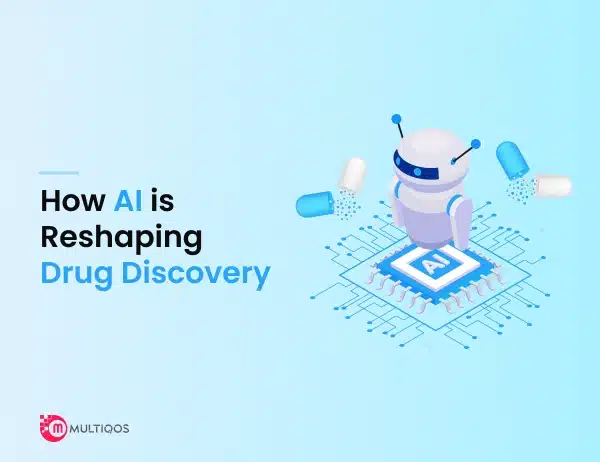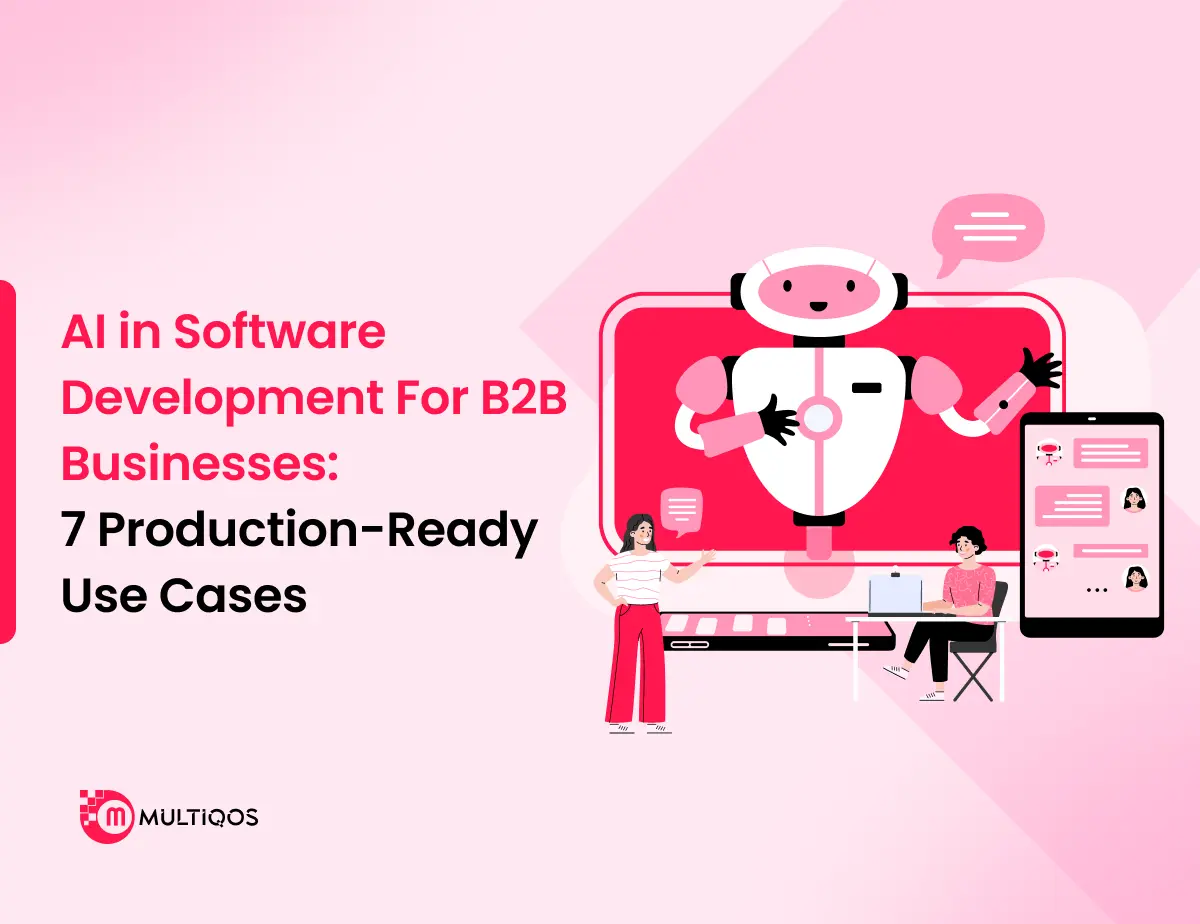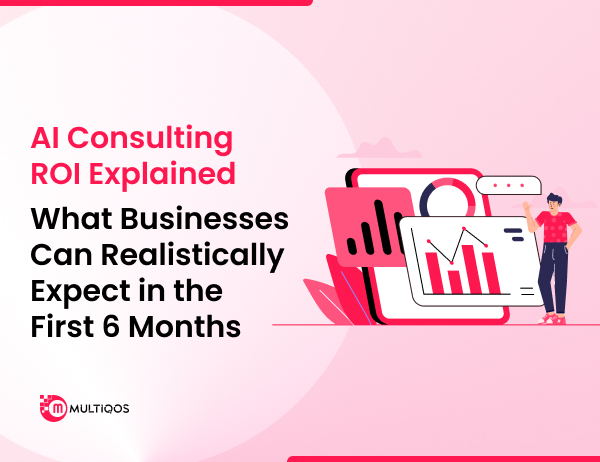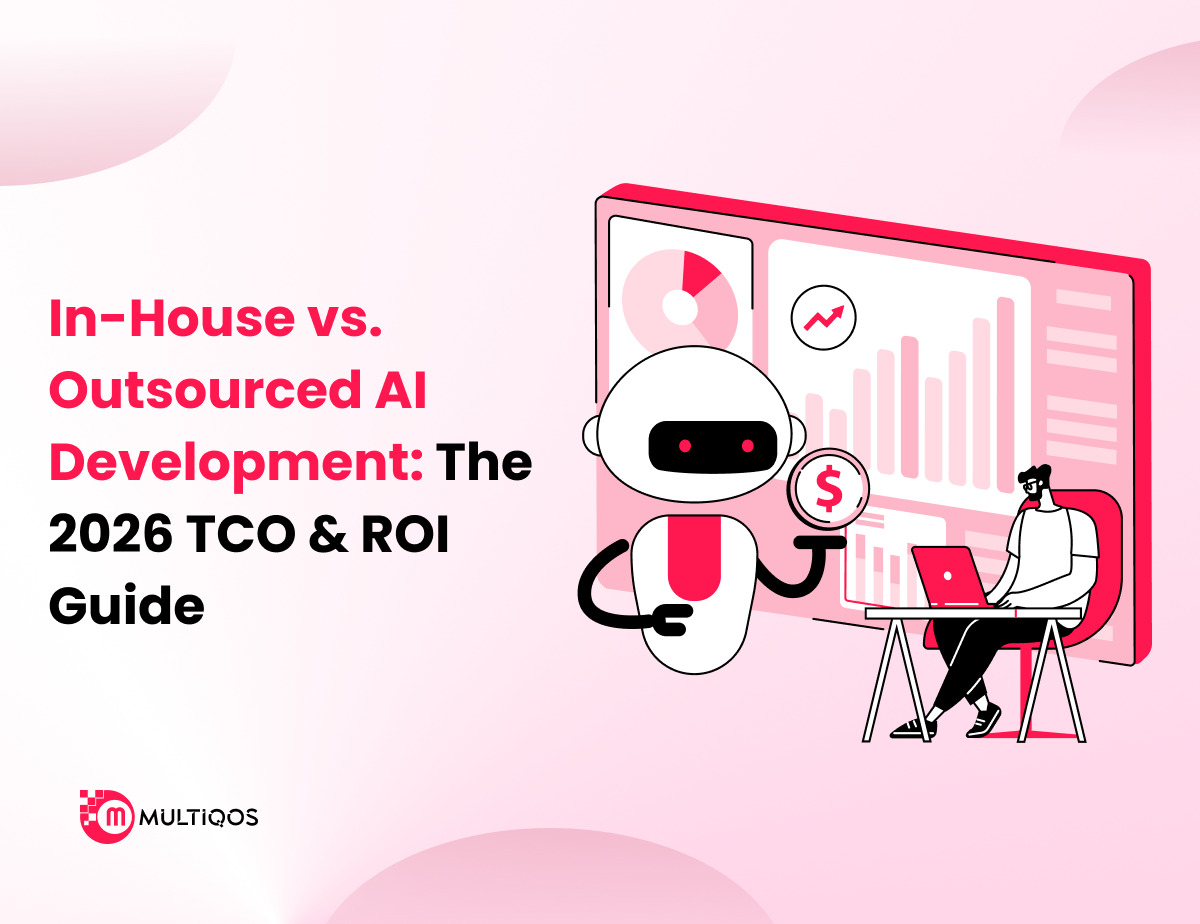How Artificial Intelligence is Changing the Landscape of Drug Discovery?

Table of Contents:
It is no more business of fiction since living real-life has embraced the use of artificial intelligence. It is here, and it continues to revolutionize numerous fields of endeavor, including the medical profession.
Technology remains one of the most important tools in healthcare, and AI can be of great use in drug discovery. This process, which used to take a lengthy and costly period, is slowly evolving to be more effective and more invigorating due to AI. But how is AI currently transforming the drug discovery process or what is the future of medicine in this regard?
Understanding AI in Drug Discovery
Artificial Intelligence refers to the ability to create machines which possess the intelligence of a human being. These are systems that have the ability to learn, to make logical deductions, and to make decisions where necessary.
In the field of drug discovery, AI applies big-data and state-of-the-art algorithms to search for new drugs with higher speed and precision than humans.
The Need for AI in Drug Discovery
It is also often costly and requires a long time when employing traditional techniques in drug discovery. With about over ten years and billions of dollars’ investment it takes to develop a drug to market.
AI helps address these challenges by offering solutions that work faster and at lesser expense. AI allows for rapid analysis of big data, outcome predictions, and identification of potent leads that may not be considered by researchers.
How AI Works in Drug Discovery
AI’s role in drug discovery can be broken down into several key components:
- Data Analysis and Machine Learning: Medical informatics can process vast quantities of data of personal, clinical, and scientific nature: records, clinical trials, and publications. Computer learning algorithms then look for these patterns and make inferences on this data.
- Predictive Modeling: AI builds models that forecast how new drugs will behave in the human body, thereby enabling determination of their side effects and effectiveness.
- Drug Repurposing: AI can identify new opportunities of using substances that are already in use, therefore, making treatments for the distinct illnesses available in a shorter span of time.
Phases of Drug Discovery Enhanced by AI
AI enhances various phases of drug discovery:
- Target Identification: AI is used in the discovery of active biological targets that are linked with diseases.
- Lead Compound Identification: AI scans through thousands of compounds in a bid to determine those which will have a higher probability to bind to the target molecule.
- Preclinical Testing: AI provides a safer way of assessing the safety and effectiveness of compounds before their use in clinical trials.
- Clinical Trials: The AI development is more helpful in efficient trial protocols and patient sampling reducing failure.
AI Tools and Technologies in Drug Discovery
Several different AI technologies are pivotal in drug discovery:
- Machine Learning Algorithms: These algorithms involve the use of data, and they come with the ability to forecast results.
- Deep Learning: Machine learning that uses artificial neurons in a way that mimics human decision-making.
- Natural Language Processing (NLP): NLP enables AI to decipher words and sentences, which makes it easy to extract knowledge from scientific documents.
Key Players in AI-Driven Drug Discovery
AI is now being deployed by many pharmaceutical firms and tech startups for discovering new drugs. The leading pharmaceutical firms such as Pfizer, Novartis, and Merck are aggressively exploring the potential applications of AI.
At the same time, some firms like BenevolentAI and Atomwise are venturing into the innovative use of AI in the research and discovery of drugs.
Case Studies
AI has already shown success in drug discovery:
- Pfizer partnered with IBM’s Watson AI to speed up immuno-oncology research.
- Atomwise used AI to identify potential drugs for treating Ebola.
- BenevolentAI discovered a drug candidate for amyotrophic lateral sclerosis (ALS) that traditional methods had overlooked.
Economic Impact of AI in Drug Discovery
The economic impact of AI in drug discovery is substantial:
- Cost Reduction: AI has specific benefits drawn from the influence it has in possibly lowering the costs of conducting drug research while increasing the likelihood of success.
- Time Efficiency: AI also suggests the possibility of decreasing the time to find potential new treatments as it seeks to deliver new medicines into the market rapidly.
- Market Growth: The AI in the drug discovery market revenue is projected to grow from $0.9 billion in 2023 to over $4.9 billion by 2028.
Challenges and Limitations of AI in Drug Discovery
Despite its potential, AI faces several challenges:
- Data Quality and Availability: For AI, high-quality and comprehensive data is necessary and getting this data is not an easy feat.
- Regulatory Hurdles: This is because regulatory bodies are still coming to terms with the use of artificial intelligence in medicine, and this may slow down the approval of such machines.
- Ethical Considerations: AI brings several ethical issues into consideration, especially in cases of privacy infringement and the possibility of the premeditated algorithms.
Future Trends in AI and Drug Discovery
The future of AI in drug discovery looks promising:
- Personalized Medicine: AI will help in the invention of drugs that can target specific gene-related diseases in persons diagnosed with diverse genetic makeups.
- Integration with Other Technologies: Integrating AI with other sciences like genomics or CRISPR will expand fresh opportunities for the analyzing of drugs.
Regulatory and Ethical Considerations
Ethical considerations in AI applications have to do with patient safety which is very important. To ensure that AI is used in a responsible manner, regulators are trying to establish rules and policies that will grow at the same pace as AI. Some of the areas to consider here include such ethics as transparent AI and protection of patients’ information.
AI and Personalized Medicine
Current healthcare is being transformed by aided intelligence, personally tailored treatments being one of them. AI has the ability to process the genetic data and thus recommend medication for individual usage with high chances of positive impact and little or no side effects.
In addition, predictive analytics also help improve patient care through factors such as expected health risks and preventive steps.
Collaboration Between AI and Human Researchers
It goes without saying that AI and human researchers are good teammates. AI is perfect for analyzing large datasets and learning from them, whereas human researchers add imagination and rigor.
This can be seen to foster drug discovery, with more effective solutions and even breakthroughs being developed.
Conclusion
There is no doubt that AI is seeping into drug discovery, and this is commendable. It is in this capacity that AI is finding its place within this industry as it could help improve its efficiency, cut down costs of procedures, and discover new treatments for common ailments.
With ever increasing advancements in the technology sector, the use of AI in healthcare is boundless with higher chances of enhancing the quality of services offered to patients. You can always opt for Hiring AI developers from MultiQoS for your healthcare business.
FAQ on AI in Drug Discovery
At MultiQoS, the implementation of AI in drug discovery is to trawl through huge data sets to help find potential new treatments. AI improves the rate of the discovery of the drug, increases the predictive capabilities, suggests new compounds, and makes the whole process faster and better. AI solutions will provide high cost savings and boast increased success rates of research within the pharma research industry.
Some of the tools we use to make data analysis easier and more efficient include machine learning, natural language processing, and automation. This goes a long way in saving time and cost of going through the process of developing drugs. By adopting AI tools, we can afford to screen numerous compounds and predict how they work, and this makes the process faster and better.
The main challenges include ensuring data quality and availability, navigating regulatory hurdles, and addressing ethical considerations such as data privacy and algorithmic bias. At MultiQoS, we are committed to overcoming these challenges by using robust data management practices, adhering to regulatory standards, and implementing ethical AI frameworks to ensure trustworthy and effective solutions.
On the medical side, AI is expected to revolutionize treatments, enhance patient experience, and work with other technologies, including genomics and CRISPR. At MultiQoS, we are uniquely positioned to lead this revolution with our advanced AI solutions that promote the discovery of new drugs, enhancements in the quality of health care, and ultimately the future advancement of medical science.
Get In Touch







